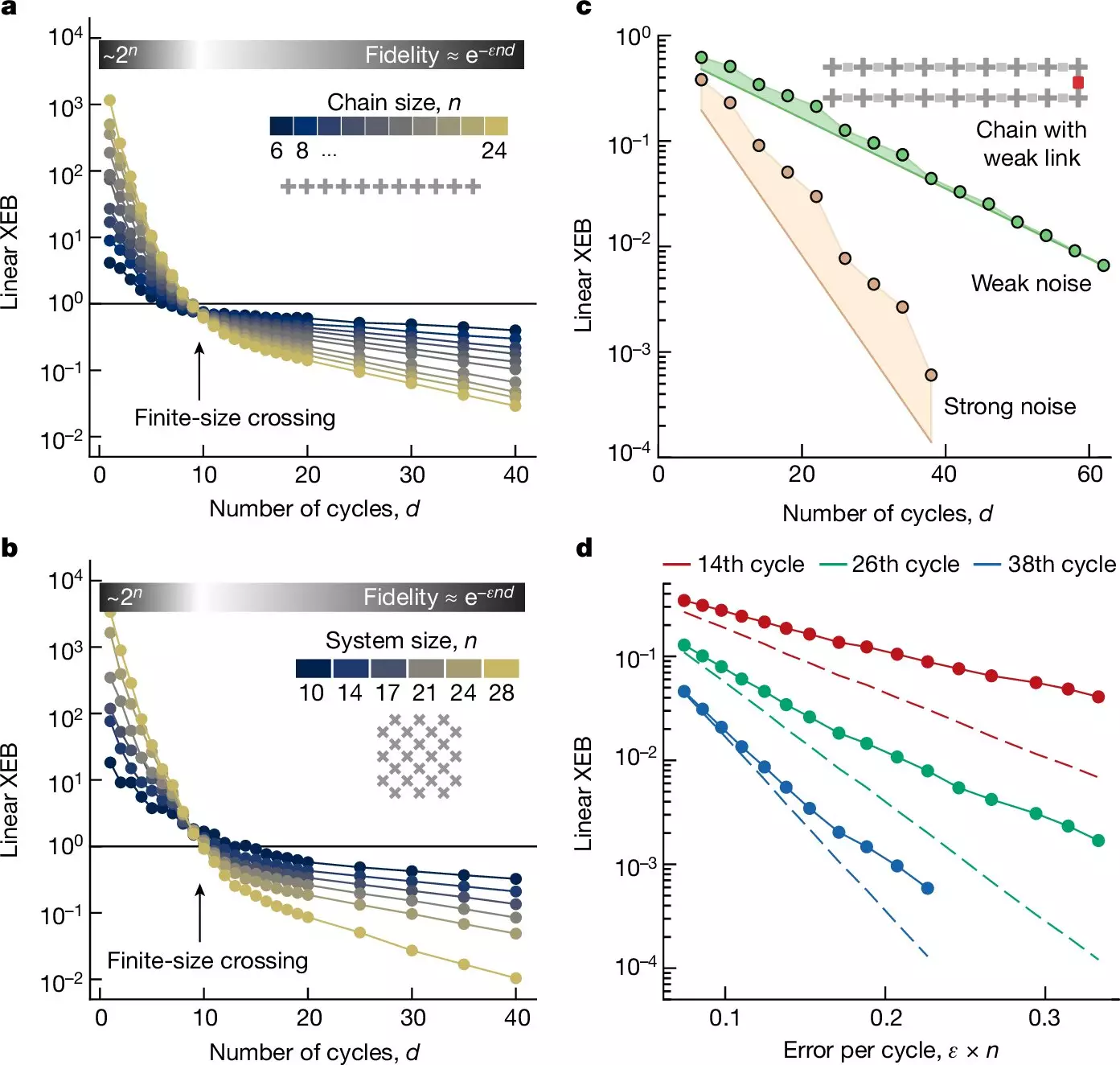Quantum computing has long been heralded as a revolutionary force capable of solving complex problems that are impossible for classical computers. The journey towards harnessing this potential has presented numerous obstacles, yet researchers at Google are making significant strides toward realizing the initial promise of quantum computing. A recent study published in *Nature* highlights how Google’s Sycamore quantum chip has surpassed classical systems in executing random circuit sampling (RCS) tasks, courtesy of effective noise reduction techniques.
A persistent challenge in the field of quantum computing is the detrimental impact of environmental noise. Factors like temperature variations, electromagnetic fields, and cosmic radiation introduce errors that can skew computational results. Researchers have endeavored to tackle this issue via error correction methods; however, success has often been limited. Noise mitigation is vital because even minute disturbances can lead to significant decreases in performance metrics, ultimately obstructing the attainment of a “quantum advantage.”
By optimizing their working environment, the Google team meticulously reduced noise levels to a point where their Sycamore chip could operate with remarkable effectiveness. In their exploratory work, they placed the chip within a chamber designed to maintain conditions close to absolute zero, effectively minimizing interference from various environmental factors.
The RCS algorithm is notably simplistic—its primary function is to generate random numbers. However, its simplicity belies the sophistication required for its execution on a quantum processor. By refining their noise control approach, researchers demonstrated that even minimal improvements in error rates can yield substantial enhancements in computational talent. The team recorded an escalation in the error rate from 99.4% to 99.7% correction, a change that translated into a significant leap in the Sycamore chip’s capabilities.
The implications of achieving a notable quantum advantage are profound. When a quantum processor can outperform classical counterparts in specific tasks, it opens the door to numerous applications previously deemed impractical. Although the notion of a fully operational quantum computer remains tantalizingly elusive, advancements such as this mark critical milestones on the journey.
Building a functional and reliable quantum computer remains a noble pursuit within the scientific community. With each advancement, researchers inch closer to making quantum computing practical for real-world applications. Google’s recent findings illuminate a pathway towards overcoming the issues that have long plagued the industry. As techniques for error reduction improve and quantum systems become increasingly robust, the vision of operating sophisticated quantum algorithms that could revolutionize industries is becoming less of a distant dream.
While challenges persist in developing truly useful quantum systems, the groundbreaking work at Google Research represents a significant step forward. As researchers continue to explore and refine quantum technologies, the horizon looks promising for a future where quantum computing could become an integral part of problem-solving across various fields. The race is on, and each milestone achieved brings us closer to unlocking the full potential of quantum computing.


Leave a Reply